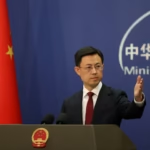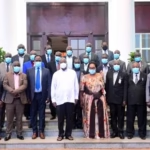The High Court has issued an interim order temporarily halting the activities of the National Unity Platform (NUP), pending the determination of a petition filed by a group led by political activist Moses Kagombe. The legal challenge questions the authenticity of the party’s constitution currently in the custody of the Electoral Commission (EC), claiming it may be a falsified document.
The decision has sent shockwaves through Uganda’s political landscape, especially among supporters of the NUP, the leading opposition party under the leadership of Robert Kyagulanyi Ssentamu, popularly known as Bobi Wine.
Kagombe and his team contend that the version of the NUP constitution recognized by the Electoral Commission is not the original or legitimate document approved by party members. They allege that it was altered without proper procedure to accommodate the current leadership structure, and are requesting that the court orders a forensic examination of the document.
“The integrity of the political party system depends on transparency and legality. If foundational documents like a constitution can be altered without due process, then democracy itself is under threat,” Kagombe said outside the courtroom.
The High Court, in issuing the interim order, stated that allowing the NUP to continue operating under a potentially fraudulent constitution could cause irreparable harm. “Until the court establishes the authenticity of the document presented to the EC as the party’s constitution, the NUP shall cease all official party activities, including public rallies, internal elections, and issuance of membership cards,” the court ruling read in part.
The Electoral Commission has maintained that it received and processed the constitution in accordance with the law and has welcomed the court process to resolve any doubts about the document’s validity.
“We stand ready to cooperate with the court and to provide any documentation or clarification necessary,” said EC spokesperson Paul Bukenya.
The NUP leadership has denounced the court order as a politically motivated attack aimed at destabilizing the opposition ahead of the 2026 general elections. Party president Robert Kyagulanyi, who is currently on a tour in Northern Uganda, responded via social media, stating:
“This is yet another desperate move by regime operatives to derail the people’s struggle. But we remain resolute and committed to the cause for change.”
NUP lawyers have filed a notice of appeal, seeking to overturn the order and restore the party’s operations while the court case proceeds.
This development comes at a critical time in Uganda’s political calendar, with parties preparing for primaries and candidate nominations for the 2026 polls. Analysts say the ruling could have a chilling effect on opposition activity and raises broader concerns about political freedoms and the independence of institutions.
“This is not just about one party. It’s a precedent-setting case on how party constitutions are handled and who gets to determine their legitimacy,” said political analyst Sarah Mbabazi of Makerere University.
The court is expected to begin hearing the substantive case within the next 30 days. If it finds that the constitution was indeed falsified, it could lead to far-reaching consequences, including deregistration of the party or criminal charges against individuals involved.
As the legal battle unfolds, the eyes of the nation—and the region—remain fixed on how the courts handle a dispute that could reshape Uganda’s political terrain.



